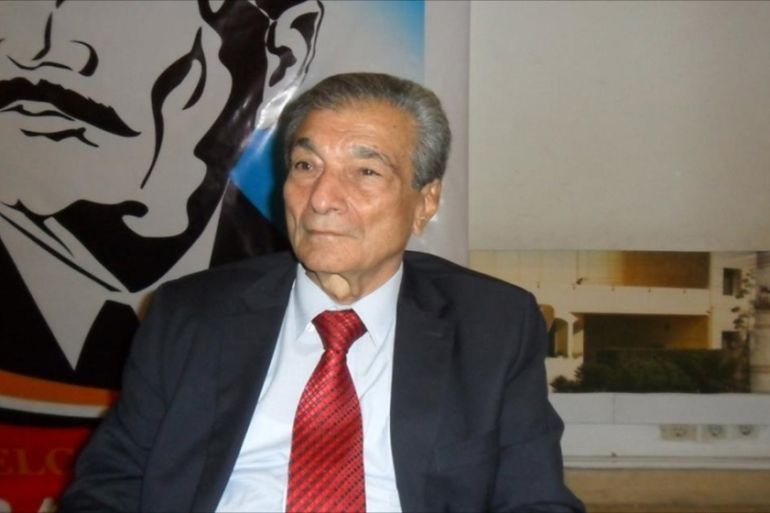Farouk Shousha and the beautiful Arabic language
An Egyptian poet and the host of the popular radio programme, Our Beautiful Language, Shousha would have been 82 today.

An Egyptian poet and the host of the popular radio programme Our Beautiful Language (لغتنا الجميلة in Arabic), Farouk Shousha (فاروق شوشة in Arabic) would have been 82 on Tuesday, January 9.
In his honour, Google is changing its logo to a doodle in nine countries across the Middle East. This is Farouk Shousha’s story:
Young poet
-
Shousha was born in the Egyptian port city of Damietta, where he received his early education at a traditional “kuttab” school – an Islamic elementary school frequently attached to a mosque.
-
A cholera epidemic in the 1930s led to his confinement at home. During this period, he spent a lot of time reading poetry.
-
Later, he began to read Arabic poetry at the local library. He would read everything from the pre-Islamic period to contemporary poets. “It was there that my first poems were born,” he said.
-
Shousha attended a Dar al-Uloom, an institution designed to teach Islamic and modern secondary education. One of his earliest poems, Ila Musafirah (For a Woman Going) was first recited in the 1950s at the seminar hall. In 1963, he was the first radio announcer to be sent to Kuwait for training.
Emotional poetry
-
In Kuwait, Farouk lived with the Iraqi poet Badr Shakir al-Sayab. Shousha described this as “the most important year of his life.”
-
For many, Shousha’s poetry is described as emotional because he often talks about love. “My relationship with women starts with my mother, who encouraged me to read and write poetry … A poet who lives without a woman, is a poet who is divorced from the universe. In the absence of women, there is no real life, only a desert.” Shousha said in an interview.
-
The first volume of Shousha’s Collected Poems was published in 1985, and the second volume in 2007. “I am happy to be honoured during my lifetime, not, as is the case with so many intellectuals, long after I die,” he said.
-
Farouk authored 13 poetic anthologies and won the Nile Prize for Literature in 2016.
In the absence of women, there is no real life, only a desert.
Media critic
-
After graduation, he began working as a radio presenter, and rose to director of Egyptian National Radio.
-
He later worked in TV, but left in 1977 after his “Cultural Evening” show was rescheduled for broadcast at 3am in the morning, instead of 8pm. Farouk “a humiliation to one of the most successful programmes on Egyptian television” and refused to go on.
- Despite being a critic of foreign education, the poet sent his two daughters to French schools, but always encouraged them to read Arabic.
-
He was a professor of Arabic literature at the American University in Cairo. Once, when a student asked about the difference between the image of Arabs in literature and in the media, he was quoted as saying: “Always believe the writers, not the announcers.”
-
In 2006, Shousha was named the secretary-general of the Arabic Language Academy, a body described by Al-Ahram Weekly as “the guardians of the language.”